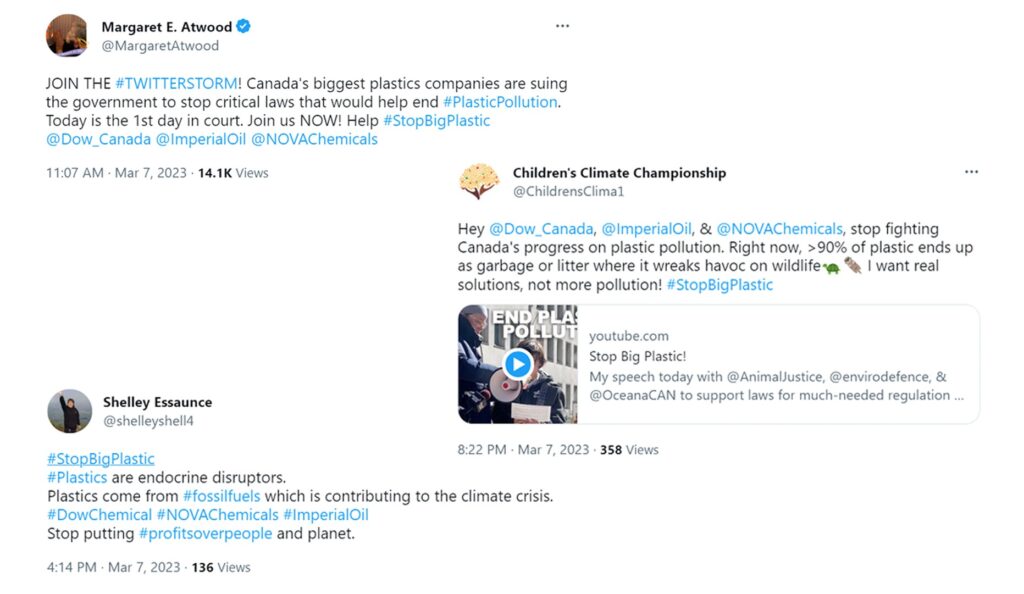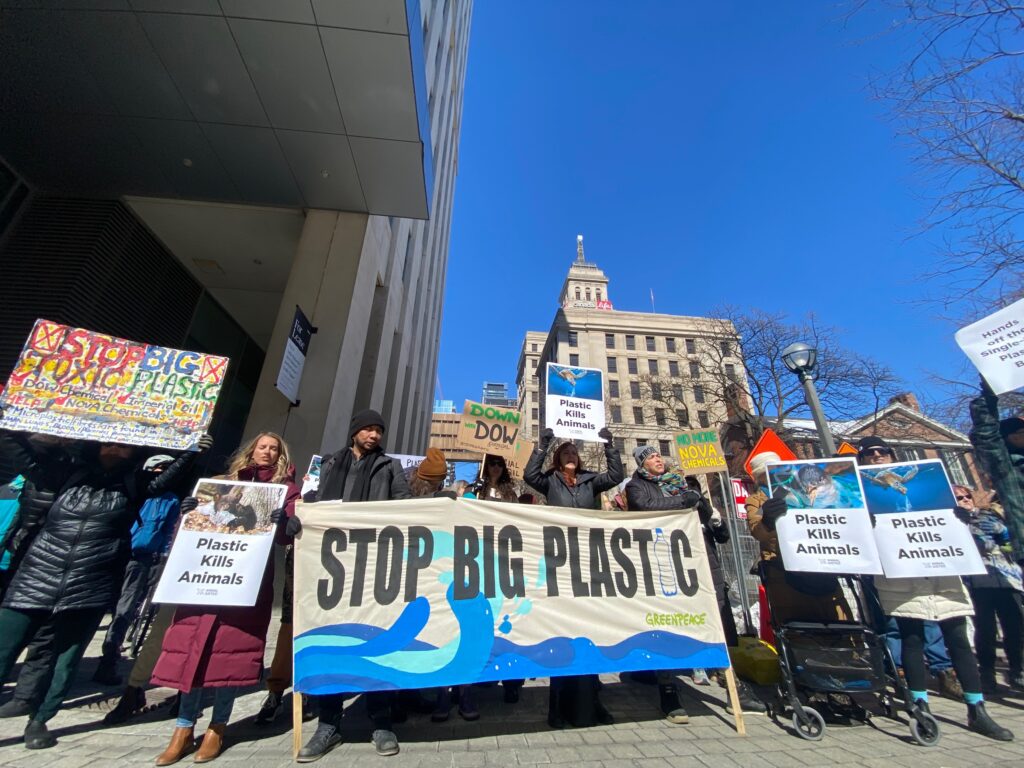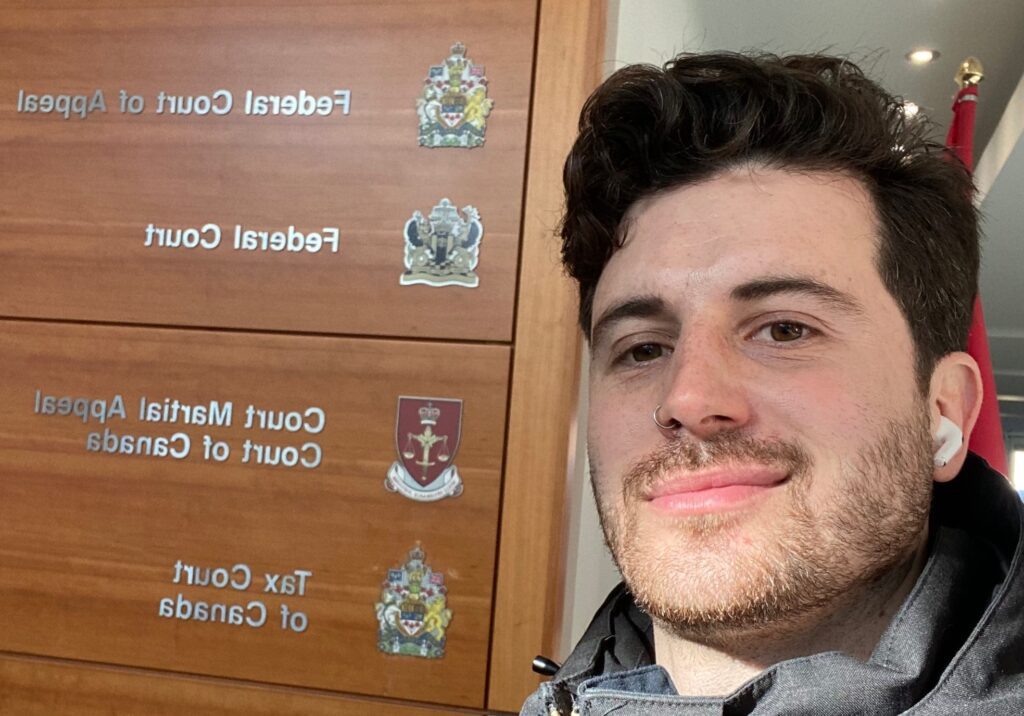March 30, 2023
Canadians showed up to tell Big Plastic to back off
Estimated reading time: 0 minutes
BY: Rachelle Naddaf
Topics: Plastics
EcoJustice, on behalf of Oceana Canada, Environmental Defence and Animal Justice, went to court on March 7 to support the federal government’s decision to list plastics under the Canadian Environmental Protection Act (CEPA). We were up against Big Plastic – multi-national oil and gas companies that produce plastics, including Dow Chemical, NOVA Chemicals and Imperial Oil, as well as the governments of Saskatchewan and Alberta. Collectively, these groups are fighting the federal government’s decision to list plastic as a toxic substance. This decision allows the government to regulate plastics and tackle plastic pollution. But we had Canadians on our side, and you showed up in a big way to tell Big Plastic to back off and focus on finding real solutions to the plastic crisis instead.
Over 3,000 of you joined our Twitter storm demanding that the plastic industry stop getting in the way of progress

Our community of supporters, called Wavemakers, in Alberta and Saskatchewan contacted their provincial governments, stating they did not support their government’s role backing Big Plastic in this court case. These Wavemakers sent over 400 emails to their government officials, urging them to stop blocking progress to tackle plastic pollution.
Dozens of you showed up to a rally with us held outside the courthouse in downtown Toronto to show your support.

Inside the courthouse, both sides made arguments over the course of three days and our lawyers presented a strong case.

Here’s a quick recap of some of the main arguments made during the court case:
Government of canada:
The Federal Government made a point to emphasize that the toxic substance listing of plastic does not target plastic business operations. Rather, it gives the government the ability to address plastic pollution through future regulation. Under the provisions of CEPA, it may regulate substances even as a precautionary measure. The government lawyers raised examples of substances listed as toxic under CEPA that are broad in nature but led to targeted regulation, such as carbon dioxide, demonstrating that plastic manufactured items have a clear precedent with past toxic substance listings. They also argued that the government’s power to regulate toxic substances under CEPA does not unconstitutionally infringe on the provinces’ jurisdiction. They emphasized that organizations like the United Nations, have called plastic pollution as a global concern that all countries should be working to address
Ecojustice on behalf of Oceana Canada and Environmental Defence:
Our lawyers highlighted that plastics are durable, ubiquitous and in most things. They highlighted that for this reason, when plastics do end up in the environment, they persist and pile up, posing serious risk to the environment. They emphasized that the precautionary principle, which is outlined in CEPA, allows the government to act to prevent plastic pollution. Even if the source of plastic pollution can’t always be traced and even if its accumulation in the environment can’t be precisely quantified, the evidence of the harm it is causing to the environment clearly allows for government regulation under CEPA.
Counsel for plastic producers and their supporters:
Plastic producers (supported by the governments of Alberta and Saskatchewan and several American plastic associations) argued that because some plastics enter the environment but not all of them, listing of all plastics manufactured items as toxic under CEPA is government overreach. Counsel for the applicant plastics producers, as well as Alberta and Saskatchewan, also argued that listing plastic manufactured items under CEPA walks all over provincial jurisdiction. They further argued that this move by the federal government undercuts the provinces’ ability to manage plastics. The issue of international trade agreements between Canada and the United States was also raised by industry interveners, who argued that the listing under CEPA may violate Canada’s trade obligation
And now we wait. The judge heard all the arguments made in court and will reserve for several months before coming to a decision.
Thank you to everyone who showed up to support us virtually and in-person, demonstrating to Big Plastic that Canadians want to see solutions to the plastic crisis. Stay up-to-date on the results of the court case by joining our online community of Wavemakers at Oceana.ca/Join or follow us on Facebook, Twitter and Instagram.

